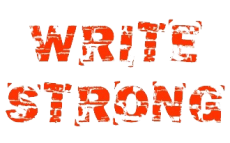By Tina Gower
 My second year of college I did an internship at the Wellness Center. We were in charge of bringing in programming to improve student, uh, well, wellness. I’ll admit, I was there because it would look good on my application to graduate school and, dude, who’s not for wellness. Wellness is like awesome and…stuff.
My second year of college I did an internship at the Wellness Center. We were in charge of bringing in programming to improve student, uh, well, wellness. I’ll admit, I was there because it would look good on my application to graduate school and, dude, who’s not for wellness. Wellness is like awesome and…stuff.
I went to a school out in the country where there are more cows than people—and no that’s not a joke. I was in 4-H and the closest I came to woo-woo arts and science (that’s what we called wellness stuff, like eating less red meat, yoga, and meditation) was joining the theatre club. At my internship in the Wellness Center I was introduced to raki, massage, yoga, acupuncture, meditation, focused relaxation, nutrition, and a ton of other things. I remember having a serious unbelieving smirk on my face through the lectures. Really? Did people really believe this stuff?
But what really made me sit up in my chair during one lecture was when a nutrition expert gave a talk about “brain food.” Aside from “eat healthy” I’d never gotten much in the way of education on nutrition. Even in cooking in 4-H we didn’t discuss it much except to take a look at the food chart and make sure we piled plenty of cheese on our homemade pizza—and the sauce? Totally covered the veggie group, right? Anyway, the professor talked about different foods and how they simulate your brain differently. I was a psych major, so I soaked in her sage words. It was the first I’d heard that certain foods helped a person concentrate better. I thought all food worked the same as long as you stayed under a certain number of calories. Who would have thought that what you put in makes a difference on how well you can think, reason, and compute?
I went home and overhauled my cupboard. Bonus, I started seeing some good results. I have dyslexia and so it’s hard for me to take a lot of sensory information at once (Do NOT ask me to read out loud or grammar/spell check. Also don’t expect me to follow a conversation in a room full of people talking). After I spent a few weeks with my new healthy snacks, I’d noticed an improvement on my focus. I was also more motivated. I’d never been into physical activity, but now I wanted walk or ride my bike to campus instead of taking the city bus. I also got into yoga—this crazy new thing all the city kids did that involved a lot of stretching and posing. I’d always been a good student, but my grades did get a little higher. I graduated with honors and that wellness internship (along with many others) did do the job to get me into graduate school.
I want to be clear that all this change didn’t “cure” me of dyslexia, it just made it easier to manage. Now that I’m a writer, that becomes more important than ever. I have an exercise and diet plan that keeps me focused and my mind clear for plotting and character development. When I spend a week with a shoddy diet and no exercise I can feel the mental fog rolling in like it does over the rice fields just outside of town.
This is the routine for me:
Aside from healthy meals that involve mostly green leafy veggies, lean meat, nuts, rice, and fresh produce (yay for California’s abundance of farmer’s markets!), I like to make healthy snacks while I’m writing.
- Carrots or peppers with a hummus dip
- Celery with peanut butter
- Roasted almonds (or walnuts, or peanuts) with a spoonful of dark chocolate chips
- Spinach salad with sliced strawberries
(Chocolate is ambrosia of the gods, don’t judge!)
The key is to stick with vegetables and protein for snacks while aiming to improve mental clarity. According to Google University, the holy research center for all that is worth knowing, these foods are associated with improved concentration in scientific studies.*
When I was working in schools as a school psychologist and counselor, we also worked with parents on children’s diets who showed problems with attention. Some of the research found that certain foods can lower our ability to focus. Such as:
- Sugar (especially the processed kind, corn syrup, I’m looking at you)
- Some breads
- Foods with dyes (Orange dye especially for attention problems. Blue and red for emotional regulation problems).
- Carbonated drinks (see sugar above)
We worked with families to lower this in children’s diets, replacing them with nuts (and other proteins), vegetables, and fresh fruits. We also increased activity (outside play). Parents and teachers marked a noticeable difference, mostly positive.
It just seems like common sense that as a writer, I would lean toward being more active and eating healthy when I noticed I was not getting as much done, or not hitting the quality of writing I wanted. Garbage in, garbage out—as one of my yoga instructors said once.
Another thing I picked up was something I learned in graduate school. In one of our counseling classes we were practicing techniques to show clients to lower anxiety. One of those activities was meditation. One way is to just sit in a quiet dark room and take breaths. Put on some ocean seagulls, wind, violin, or whatever for bonus points. Another kind of meditation is called progressive relaxation. You get on the floor and start with your toes. Tighten all the muscles in your upper foot for the count of five (breathing in and out slowly) and then release. Move on up your body, contracting small muscle groups until you get to your face. This is not some woo-woo counseling magic—it’s science. When practicing breathing (taking in oxygen) it sends signals and neurotransmitters to our brain to calm the heck down. When we’re not in our brain steam freaking out over flight or fight, we can stop and think. Meditation=mental clarity. The right foods=concentration. Yoga=focus. Put it all together and you become an unstoppable writing ninja of badassness.
Good luck and Namaste.
*Look it up yourself. Find out what works best for you. Also I’m not a doctor; don’t expect me to give you all the answers. This is just what works for me.
—
 In her youth, Tina lived her life in a land of fantasy called the State of Jefferson. No really, her home state technically didn’t exist (except in the minds of the community members and locals). With a zip code borrowed from a town a half hour away and a state that never quite became recognized in the Union, Tina still managed to find footing in the real world. She earned a master’s degree in school psychology, raised guide dogs, and eventually decided to train her own two children. She believes them to be perfect, but that depends on if her children are as real as her hometown. Tina has sold short fiction to professional science fiction markets, won writing awards, and is represented by Rebecca Strauss at DeFiore and Company.
In her youth, Tina lived her life in a land of fantasy called the State of Jefferson. No really, her home state technically didn’t exist (except in the minds of the community members and locals). With a zip code borrowed from a town a half hour away and a state that never quite became recognized in the Union, Tina still managed to find footing in the real world. She earned a master’s degree in school psychology, raised guide dogs, and eventually decided to train her own two children. She believes them to be perfect, but that depends on if her children are as real as her hometown. Tina has sold short fiction to professional science fiction markets, won writing awards, and is represented by Rebecca Strauss at DeFiore and Company.
You can follow her on
Facebook: www.facebook.com/gowertina
Twitter: www.twitter.com/TinaGower

Be First to Comment